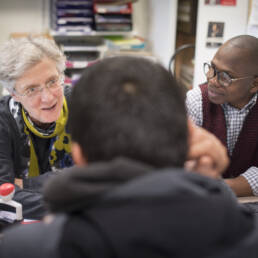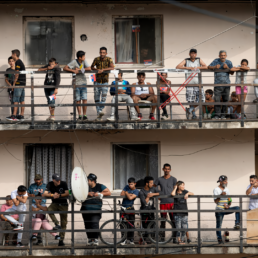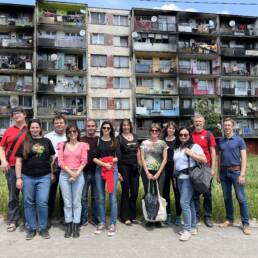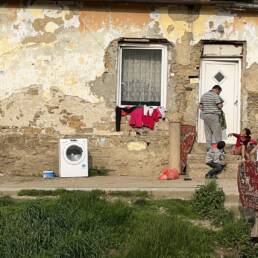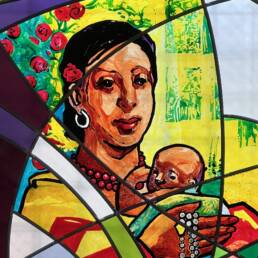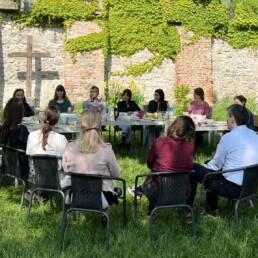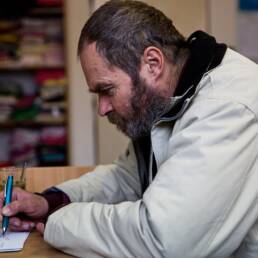Author
Nicolas Schmit
Commissioner for Jobs and Social Rights
European Commission
An economy that works for the people should ensure social fairness. But believe it or not, in 2020, around 110 million people in the EU, one of the most prosperous regions in the world, are at risk of poverty or social exclusion.
While the numbers in poverty have been falling, the depth of poverty is increasing – meaning those still in poverty are falling further behind. There are huge gaps not only between Member States but also between regions.
This points to a smaller number of disadvantaged, often jobless, households who are trapped in the poverty cycle. What is more, when you drill down into the numbers, you can quickly see that certain groups are particularly exposed.
What worries me most is that nearly a quarter of Europe’s children are at risk of poverty or social exclusion. Though child poverty at European level is decreasing, there are still large differences between Member States and in some, the level of child poverty is even increasing. This trend points to a risk of increasing inequality of opportunity for future generations. After all, the circumstances we experience as children – good or bad – determine our entire life path.
Rising housing expenses are another challenging issue, in particular in urban areas and for tenants and single parent households. In many of Europe’s cities, rental and other housing costs are spiking. This can put people at risk of homelessness and housing exclusion. Rough sleeping, the most acute form of homelessness, has been steadily rising across the EU.
An inclusive society is also about more than just monetary poverty. Across the Union, millions still lack access to essential services. In Member States where economic growth is concentrated in the cities, it is often the rural areas that risk falling behind, in terms of digital communications, sanitation, transport and energy. As the EU’s economy becomes greener and more digitalised, and jobs are transformed, action to ensure that nobody gets left behind is crucial.
Implementing the European Pillar of Social Rights
The European Pillar of Social Rights – the EU’s compass for meaningful reforms towards a more just economy that works for everyone – can weather the upheavals of the green and digital transitions and support the fight against poverty and social exclusion.
In January, I announced the intention to present an Action Plan to further embed the Pillar at EU and national levels. To this end, we launched a broad consultation and engagement process, inviting all authorities and partners to present their views and pledge their own concrete commitments to implement the Pillar1. I encourage all relevant actors to take part in this feedback exercise that will help us shape the necessary EU actions. Fighting poverty and social exclusion is extremely important for the new Commission’s work. We need an integrated approach.
We are working on an update of Skills Agenda that will be presented shortly. The goal is to make sure that the European citizens have the skills they need to help them not only to adapt to a fast-changing labour market and society, but also to make the skills they already have more visible and valued.
The Commission will also propose a new Child Guarantee, to make sure that children in vulnerable situations have access to the services they need and are supported until adulthood. This is just one of our measures. If the Commission can help tackle the poverty of parents – and improve their lives -, the children will benefit too.
A social safety net providing a life in dignity is the first line of defence for the working age population. In Europe, this means minimum income schemes. These are typically last resort cash payments, means-tested and often requiring beneficiaries to participate in labour market activation measures. I believe that improving the effectiveness of such schemes will make a big difference for people in need.
The Commission is also considering ways to improve access to housing of good quality and the fight against homelessness. We need better tools to measure the most severe forms of homelessness and housing exclusion using a common scale. They can help us devise the right policy measures targeted at the problem: increase affordability in cities, foster social inclusion and avoid spatial segregation.
Particular attention needs to be given to young people with disabilities, those with a migration background and young parents, all at a high risk of falling behind. To step up the fight against youth unemployment, the Commission will present a reinforced Youth Guarantee that already helps 3.5 million young people each year to get into training, education or work.
A new initiative on Roma equality and inclusion will be presented. Many Roma are victims of prejudice and social exclusion, despite the fact that EU countries have banned discrimination.
The Commission will present a strengthened strategy for disability in 2021. People with disabilities continue to face difficulties in accessing education and training, employment, social protection systems and health care.
I have set out the broad outlines. But the process of finalising the Action Plan is ongoing.
There are challenging times ahead of us, but if we work together, we can make Europe’s future be a fairer and more social one.
Notes:
1. Have Your Say on Reinforcing Social Europe: https://ec.europa.eu/social/main.jsp?catId=1487
About the author:
Nicolas Schmit took up office as European Commissioner responsible for Jobs and Social Rights in December 2019. Prior to this, and following a long career of public service in his native Luxembourg, he took up duty as Permanent Representative of Luxembourg to the EU in 1998 for a six-year term. In 2004, he was appointed Minister Delegate for Foreign Affairs and Immigration.
From 2009 to 2018, he held the position of Minister for Labour and Employment in the Luxembourgish government. He served as a Member of the European Parliament for the social-democratic Lëtzebuerger Sozialistesch Aarbechterpartei following his election in May 2019. Nicolas Schmit holds a Doctorate in International Economic Relations and a Masters in French Literature from the University of Aix-Marseille.


